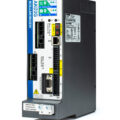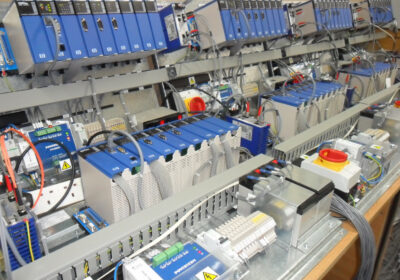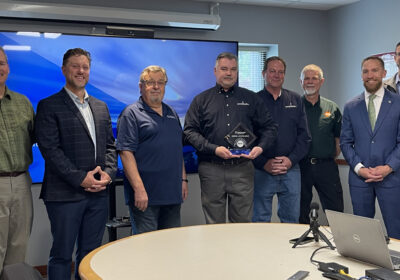RiConnect Inc.’s cloud-based Software as a Service (SaaS) offering includes Digital Product Passports (DPP), as industry adapts to the European Union’s Ecodesign for Sustainable Products Regulation (ESPR).
RiConnect is dedicated to simplifying and digitalising the processes around compliance and traceability for equipment management. Having pioneered utilisation of radio frequency identification (RFID) chips, allowing end users of lifting and other equipment to keep up with pre-use checks and unique identification numbers, it has again pivoted towards global regulatory developments, specifically with customers and the ESPR in mind.
In short, the ESPR aims to significantly improve the sustainability of products placed on the EU market by enhancing their circularity, energy performance, recyclability, and durability. Effective last year, it replaced the Ecodesign Directive 2009/125/EC and establishes a framework for setting eco-design requirements on specific product groups. It expands the Ecodesign Directive to cover virtually all physical products; and reinforces the range of eco-design requirements that can be set.
A DPP is a data management tool that records a product’s lifecycle information, including material composition, energy performance, maintenance guidelines, and recycling methods. A DPP promotes compliance and transparency, while improving resource efficiency and supporting circular economy goals.
Rob Whitehurst-Maiden, sales manager at RiConnect UK Limited, said: “We fully support the move to ESPR. It provides a critical legal framework for global digitalisation and sustainability, perfectly aligning with RiConnect’s DPP functionality. We believe this is not only a regulatory requirement but also a significant opportunity to drive industry transparency and enhance resource efficiency. RiConnect is committed to transforming compliance demands into business value, helping companies remain competitive in an ever-changing market.”
RiConnect’s DPP is based on four pillars:
- Assignment: each product’s DPP is tied to a unique identifier and automatically generated via RFID technology.
- Update: DPP data is fixed upon generation, ensuring compliance by preventing manufacturers from altering product data post-sale.
- Use: end users can access product information by reading RFID tags with a smartphone, without additional applications.
- Disposal: the DPP provides clear recycling and reuse guidelines to maximise resource utilisation.
Global shift towards digitalisation
The breadth of the system reflects the ESPR’s wider scope beyond energy-related products including, say, anything from air conditioners to refrigerators. Practically, it means that every company must consider lifecycle compliance and transparency for their entire product portfolio. RiConnect’s DPP solution is highly adaptable to different industries, offering complete product information management to address this pivotal regulatory shift.
Whitehurst-Maiden said: “Inevitably, ESPR will accelerate the global shift towards digitalisation. For example, industrial lifting equipment manufacturers have already adopted RiConnect’s DPP solution to ensure compliance with EU regulations, while significantly enhancing supply chain transparency and efficiency. These success stories demonstrate how [DPP] adoption will become a global standard.”
RiConnect employs a multi-layered approach to monitor global regulatory activities:
- Professional monitoring: using platforms like EUR-Lex and networks from international industry associations to track updates, focusing on environmental and sustainability regulations.
- Internal compliance experts: an in-house compliance team analyses and internalises the latest international regulations to ensure the platform remains aligned with global standards.
- Partnership collaboration: collaborating with patent firms and technical experts ensures that technological innovations meet current and future regulatory requirements.
The strategy enabled the company to lead customers on conformity with other global regulations, such as the U.S.’s Resource Conservation and Recovery Act (RCRA), focusing on waste management and resource efficiency; and Japan’s Basic Law for Establishing a Recycling-Based Society, which emphasises recycling and reuse.
Whitehurst-Maiden added: “While these regulations are impactful, the ESPR is the most comprehensive and influential, serving as a global benchmark. We encourage businesses to adopt RiConnect’s DPP solution to stay ahead of regulatory changes, enhance brand trust, and improve operational efficiency.”
ESPR compliance is another example of the versatility of the RiConnect Compliance Management System that can be applied across a myriad of products and applications, upheld by the CTSN — compliance, traceability, status, net zero — concept.








